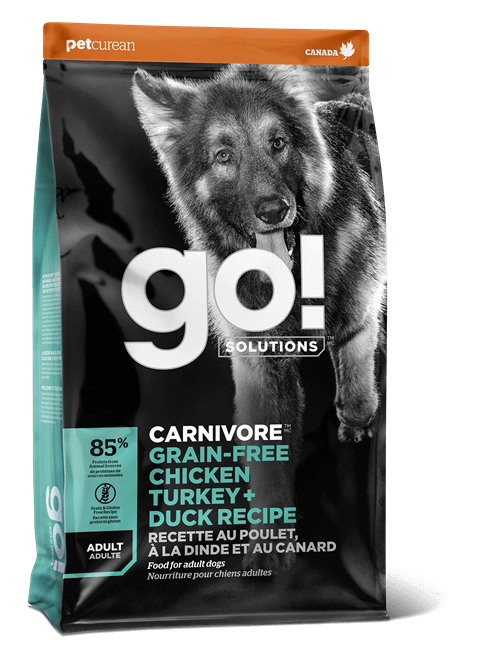Feeding the Working or Performance Dog – Myth vs Reality

Petcurean offers some insights and dispels some myths about feeding a working/performance dog.
Myth 1: Dogs don’t need carbs
Reality: While dogs don’t have a nutritional requirement for carbs, they provide instant access to energy which is beneficial to working dogs. Moderate carb levels provide quick energy while allowing protein to focus on muscle function and repair. Carbs are also useful in stabilizing gut motility in hard working dogs.
Myth 2: High fat levels in my working dog’s food will make him fat
Reality: Fat supplies more than double the calories of any protein or carb, and is the best way to provide an additional energy source for your working dog. Increased fat levels can be utilized for energy rather than depleting protein stores needed for muscle maintenance and repair. There are many types of fats and oils that share similar property structures that can be used for increased energy, such as Coconut Oil. This quickly digested fat is highly palatable and rapidly digested from the intestinal tract making it a preferred energy source for athletic animals.
Myth 3: Dogs need to eat before they work
Reality: Timing of your dog’s meals is important. Dogs fasted for 6 – 16 hours and up to 24 hours before exercise should perform well as they have the ability to store energy from previous meals. When dogs are fed 6 -12 hours prior to hard work, they use more carbs and fats than protein for energy, which helps maintain muscle levels.
Myth 4: Dogs should eat immediately after working
Reality: Within 30 minutes of prolonged intensive work, feeding a carbohydrate supplement or a glucose polymer replenishes energy stores in the muscle. Feeding should occur after the dog shows signs that their normal rhythmic balance has returned. When hard working dogs are fed post-exercise, the nutrients in their diet can replenish amino acids (protein) depleted by muscle breakdown during exercise.
Myth 5: Choosing the right food is complicated
Reality: Based on a combination of high intensity activity and duration of work, a good rule of thumb is to allow 34% of calories to come from protein and 39% from fat, leaving 27% for carbs. The protein level should be a minimum of 32% to prevent muscle breakdown. For dogs who are training and working lightly, protein levels can be decreased. If you prefer to feed a lower fat diet for your hard working dog, you can always supplement at a later date to gain the extra calories. However, supplementation must be done at least 6 weeks in advance of your season to allow their metabolism to adjust.
If you are looking for an ideal food for a working dog? Try:


